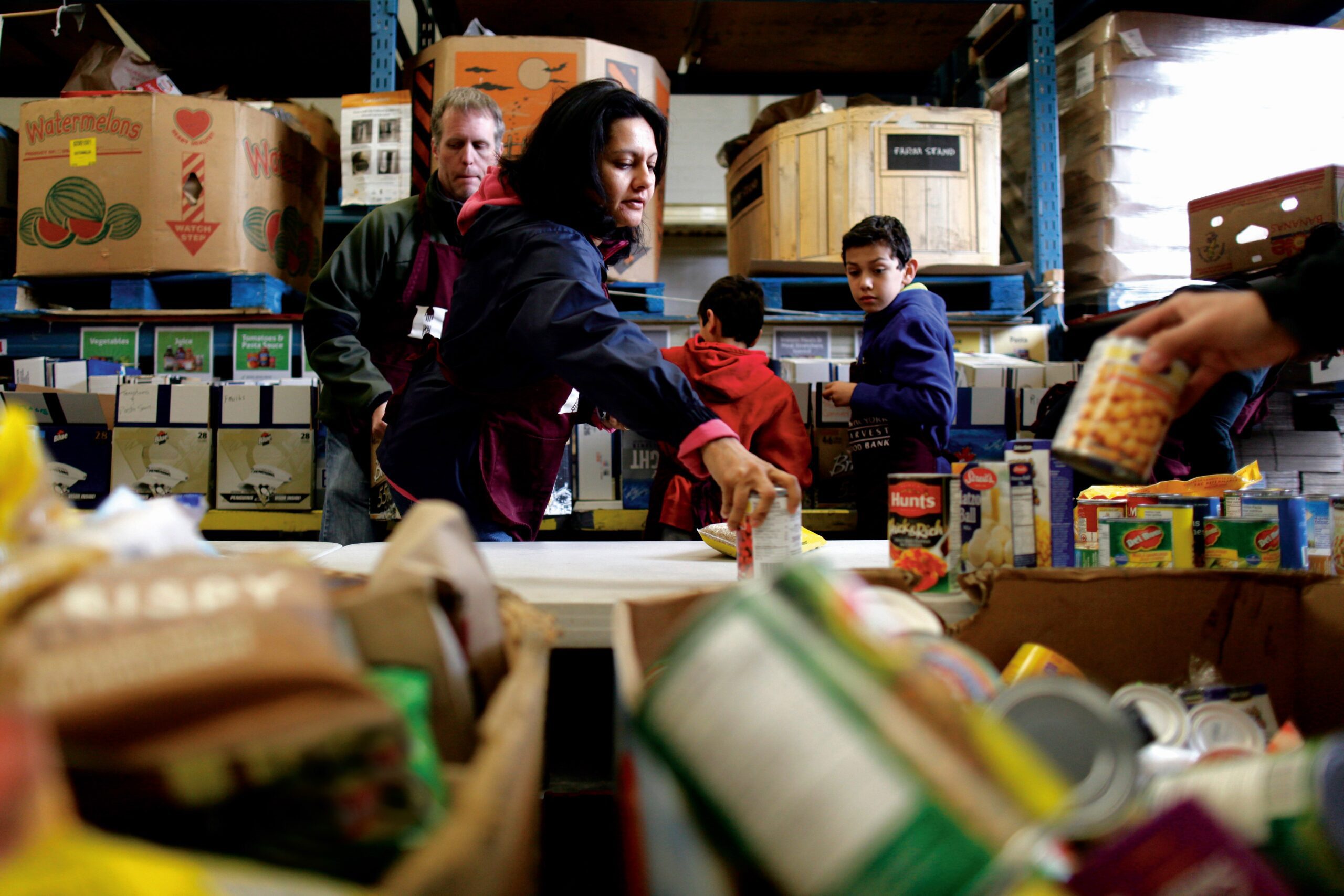Canada’s first food bank opened in Edmonton during the recession of the early 1980s. Since then, Canadians have constructed a compelling narrative about the problem of hunger in our communities. To this problem, food seems like the natural solution, and so what was originally conceived as a temporary response to an emergency has become institutionalized across the country. Whether it’s through food banks, food drives or free meals, food charity has become the dominant answer to the pervasive problem of hunger.
Despite this outpouring of generosity, food insecurity persists. According to the most recent national measure in 2012, over four million Canadians are food insecure, including 1.15 million children. That’s one in eight households that struggle to put food on the table. Unfortunately, emergency food has never had the power to reduce food insecurity.
Studies undertaken by PROOF, a food insecurity research team at the University of Toronto, have shown that only one quarter of food-insecure households are likely to access a food bank. Going to a food bank is a last resort for many — on par with pawning your things to pay for groceries. Although some food banks are trying to address concerns around dignity, choice, nutrition, culturally appropriate foods and accessibility, most are unable to meet the needs of their users due to a lack of resources, awareness or understanding. And people are usually offered only a few days’ worth of groceries, which doesn’t address long-term food insecurity.
More on Broadview: Nunavut educator: Inuit teachings on food are key for youth
Food charity has been called “a miracle of the human spirit” by Sylvain Charlebois, a Canadian food distribution researcher at Dalhousie University. The real miracle, however, would be ending the emergency altogether. Food charity is, at best, a Band-Aid solution. At its worst, it actually exacerbates the problem. Graham Riches, an emeritus professor at the University of British Columbia and a tireless proponent of the right to food, has called food charity a “moral safety valve” that absolves us of responsibility to address the root causes of poverty in a more effective and humane way.
Looking at poverty through the lens of hunger suggests easy, intuitive solutions like free or inexpensive food. But really, food insecurity is a result of not having enough money to buy food. That means the only real solutions are income-based.
Income solutions are proven to work. Food insecurity rates among Canadian seniors are low because they receive what is essentially a basic income from the federal government. Old Age Security (OAS) and the Guaranteed Income Supplement (GIS) can change people’s lives overnight on their 65th birthday. Likewise, the Canada Child Benefit (CCB) reduced the rate of severe food insecurity among low-income families by one-third after its introduction in 2016.
Although these results are promising, many families continue to struggle. Valerie Tarasuk, PROOF’s principal investigator, says, “To have a stronger impact on food insecurity, the government would need to put more money in the hands of the lowest-income families.” Regrettably, the OAS, GIS and CCB also leave behind all those adults who are not yet 65 and who do not have children. To eliminate poverty entirely, a basic income is needed for every individual living on a low income.
According to the latest data, more than half of food-insecure households in Canada are supported by working people. Just having a job is no longer enough to ensure someone can afford basic necessities for themselves and their family. The face of hunger is clearly changing in Canada, and the narrative about how to respond must change, too.
This column first appeared in Broadview‘s May 2020 issue with the title “Beyond food charity.”
Broadview is an award-winning progressive Christian magazine, featuring stories about spirituality, justice and ethical living. For more of our content, subscribe to the magazine today.
















A number of issues here:
1) Pride keeps people from Food Banks – if we’re hungry enough, we’ll “inconvenience” ourselves to satisfy that need.
2) We should be addressing our waste – tons of food is “thrown out” by those of us who can afford food (expired cans and packages), and by restaurants, which are supported by our desires of gratification and gluttony.
3) If we do the math – increasing income, will only increase the costs of goods (food) – most of those who are responsible for our food are the ones living on poverty. Increase their wages = Increasing costs. (Not saying it’s a bad solution, just not as practical as you suggest)